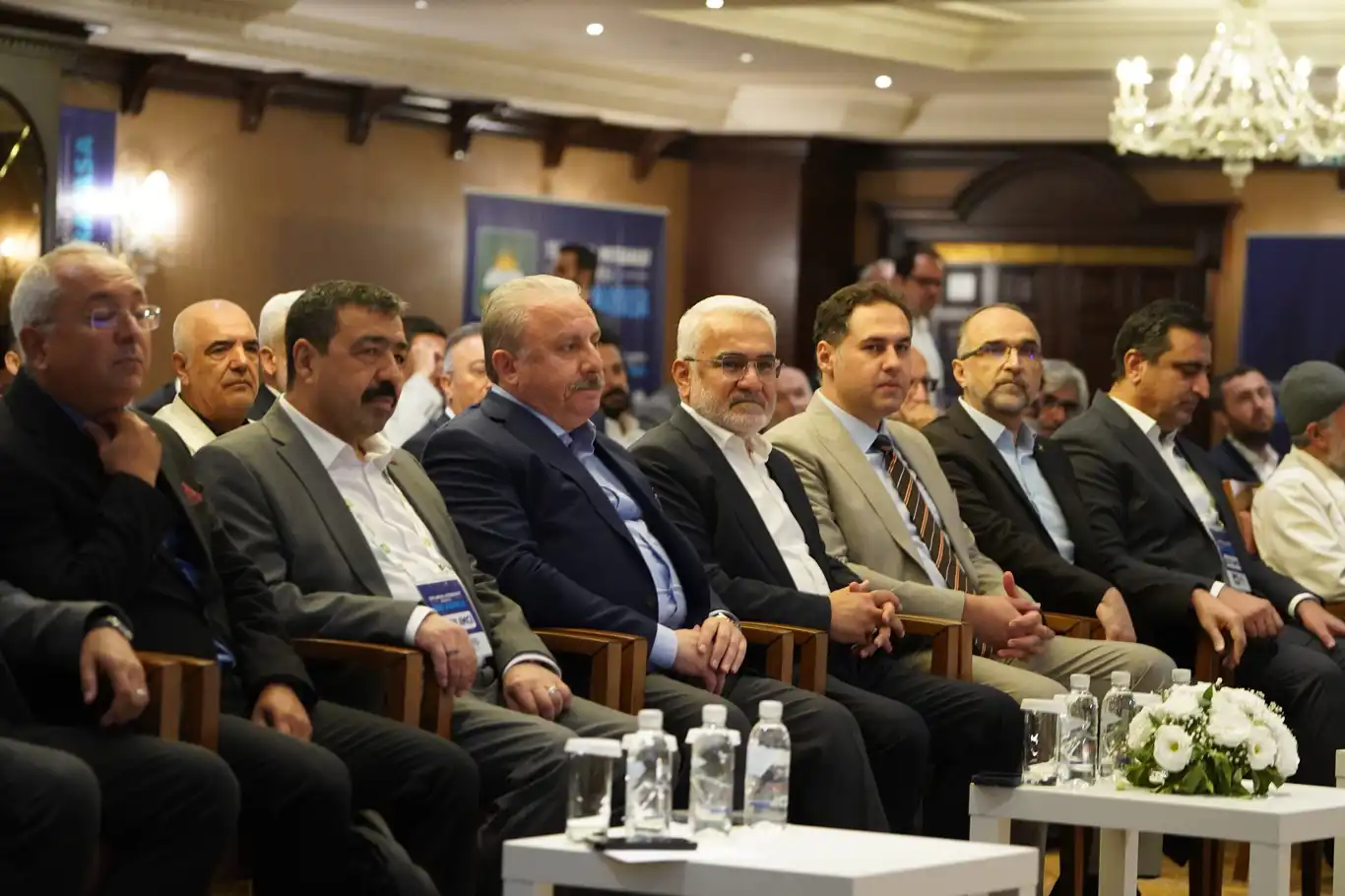HÜDA PAR hosts landmark workshop on Türkiye’s new constitution in Istanbul


The workshop titled “The Search for Social Consensus and the New Constitution,” organized by the HÜDA PAR Human Rights and Legal Affairs Directorate, has officially begun in Istanbul, bringing together prominent scholars, jurists, and intellectuals to discuss the principles and roadmap for drafting Türkiye’s new constitution.
Held in the historic Topkapı district, the event brought together leading scholars, jurists, and intellectuals to examine the philosophical, legal, and moral foundations of a new, people-centered constitution for Türkiye. Organizers emphasized that the aim was not merely legal reform but a comprehensive societal renewal that reflects the nation’s values, aspirations, and Islamic identity.
The program began with a spiritually moving recitation from the Holy Quran by Sheikh Cemal Mürsel, reminding participants that a constitution must be more than a technical document – it must be a covenant rooted in justice as commanded by Allah.
In his opening address, HÜDA PAR Deputy Chairman and Head of Human Rights and Legal Affairs İshak Sağlam described the workshop as an opportunity to reclaim Türkiye’s constitutional process from top-down, ideologically imposed models of the past. HÜDA PAR Chairman Zekeriya Yapıcıoğlu was also scheduled to address participants, reiterating the party’s call for a constitution that emerges organically from the nation’s authentic identity, faith, and shared social consensus.
First Panel: Why a New Constitution?
The first panel session, moderated by Islamic jurist Dr. Hüseyin Sudan, explored the historical and philosophical reasons behind the need for a new constitutional framework.
Former Speaker of the Grand National Assembly Prof. Dr. Mustafa Şentop opened with “Why a New Constitution? Turkey’s Constitutional Journey,” highlighting how previous charters were often products of military coups or elite-driven processes that failed to reflect the popular will.
Prof. Dr. Abdurrahman Eren analyzed the “problem of authority” in constitution-making, stressing that legitimacy must be grounded in public consent rather than political expediency. Prof. Dr. Emir Kaya offered a reflection on the nature and purpose of the state, advocating for a state that serves its citizens rather than dominates them. Attorney Ahmet Sait Öner concluded the session with insights on producing a constitution that is both original and representative of Türkiye’s diverse society.
Second Panel: Protecting Family, Nature, and Faith
The second session, moderated by journalist and writer Muharrem Coşkun, focused on the moral and social dimensions of constitutional design.
Prof. Dr. Saffet Köse argued that any future constitution must enshrine the protection of the family as the cornerstone of society and safeguard the natural environment. Attorney Kaya Kartal examined ethnic identities within the constitutional order, calling for a framework that respects diversity while strengthening national unity.
Islamic intellectual Hamza Türkmen posed the crucial question of whether an inclusive constitution free of ideological imposition is possible, urging a rejection of secular authoritarianism and allowing society’s faith to guide governance. Prof. Dr. Abdulmuttalib Arpa added an economic perspective, insisting that believers’ right to faith-based economic activity be guaranteed and safeguarded.
Third Panel: Rights, Education, and Privacy
The final session, moderated by attorney and sociologist İlhami Sayan, dealt with critical issues related to rights and governance in the modern era.
Prof. Dr. Yasin Aktay emphasized the need for robust protection of cultural rights, ensuring that communities preserve their languages, traditions, and religious practices. Assoc. Prof. Dr. Halil İbrahim Çelik presented a comprehensive critique of the education system, calling for reforms that balance continuity with innovation while upholding moral and spiritual values. Dr. Adnan Akalın concluded with a presentation on personal data and privacy, stressing the importance of safeguarding citizens in the digital age.
Toward a Constitution Rooted in Justice and Faith
The workshop was set to conclude with the reading of a final declaration summarizing the key proposals and principles discussed throughout the day.
Participants and organizers viewed this initiative as part of a wider movement to anchor Türkiye’s next constitution in justice (adl), moral responsibility, and the shared values of its people. Rather than adopting a secular, Western-style charter detached from society’s faith, the envisioned constitution aimed to be a living social contract inspired by Islam’s principles of justice, accountability, and human dignity.
By convening prominent Islamic scholars, academics, and civil society leaders, HÜDA PAR signaled a growing demand for a constitutional order that treats religion not as a threat but as a source of wisdom and legitimacy. (ILKHA)
LEGAL WARNING: All rights of the published news, photos and videos are reserved by İlke Haber Ajansı Basın Yayın San. Trade A.Ş. Under no circumstances can all or part of the news, photos and videos be used without a written contract or subscription.
On the 45th anniversary of the September 12, 1980 military coup, HÜDA PAR issued a statement emphasizing that the institutional legacy of the coup mentality continues to affect Türkiye’s political and social life through the 1982 Constitution.
More than 50 shopkeepers in Istanbul’s Üsküdar district have committed to donating all proceeds from their sales today to Palestinians enduring Israel’s ongoing genocide.
This week’s Friday sermon, prepared by the Presidency of Religious Affairs (Diyanet) and recited in tens of thousands of mosques across Türkiye, focused on one of the most vital pillars of Muslim society: the family.